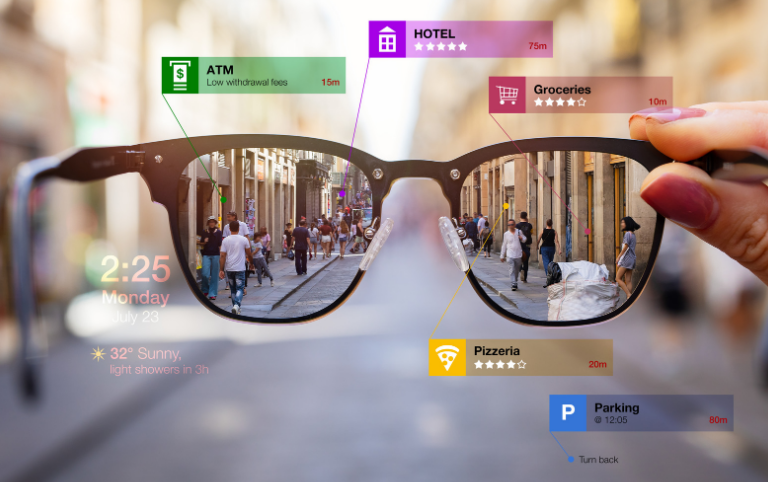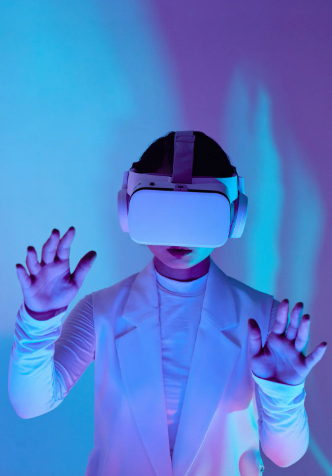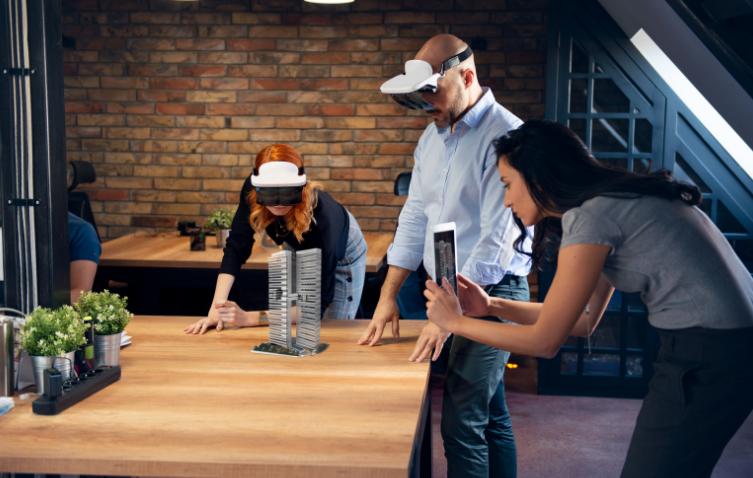The future is near, one where the metaverse will be used the way that the internet is used today. One where gaming, socializing, shopping, and recreation will all be carried on in a parallel digital world.
A growing proportion of our lives, work, recreation, time, wealth, happiness, and relationships will be spent within virtual worlds, not simply assisted by digital devices. Think of the metaverse as a parallel, virtual plane of existence, one that encompasses all digital technologies, and that even comes to dominate a large part of the physical world. This is the metaverse, a fully realized digital world existing outside the real one in which we live.
In a nutshell, the Metaverse could be described in a few words as a virtual 3D world of the Internet, in which people and companies could virtually interact with one another.

More precisely, the metaverse is that point in time when our digital lives--our identities, experiences, relationships, and online assets--become more significant to us than our physical lives. It is a three-dimensional uplifting of the online world, encompassing AR - the invisible virtual simulations in the world around us - and most of the leisure activities and socializing that consumers engage in. A virtual world shared by all, in which land, buildings, avatars, and other physical entities may be bought and sold, usually using cryptocurrencies.
The metaverse would come in a variety of forms, including games, online communities, and work meetings, in which individuals cooperate through digital facsimiles or avatars of themselves. It will define friendships, relationships, and interpersonal dynamics, by allowing people from around the world to connect face-to-face without having to travel.
Like the Internet, the metaverse has a number of core technologies supporting it, including machine learning, blockchain, 3d graphics, digital currencies (cryptocurrency) networks and infrastructure for providing content to metaverse users, hardware for immersing users into the metaverse and rendering sophisticated three-dimensional environments, and programming standards and protocols for both enabling various stakeholders to build new content and experiences within the metaverse, as well as for different worlds and creations to communicate with one another.

Technologies such as virtual reality (VR), the computer-generated simulation of a 3D image or environment, and augmented reality (AR), the superimposition of computer-generated imagery over the user's vision of the real world, will play significant roles in making the metaverse come to life.
The metaverse's future is about the idea of running openly and virtually, with no interference from any one community or corporation.
Its creators will come from all around the world, with multiple brands looking to open up their outlets and do marketing in a larger metaverse, much like they do on the Internet.
The future metaverse may also become a massive contributor factor for growth in the virtual economy, which is dependent on video games and virtual worlds, with virtually no interruption.
The metaverse has also been described as a place for users to link, interact, and move themselves and their possessions between multiple digital locations. Also, it can be used to perform different types of work, including the simulation of real-world tasks, in VR, for the first time.

More advanced versions involve using VR headsets and controls, which really immerse the user into the digital world, replicating their movements.
While some of its elements are likely to succeed, such as corporate augmented reality (by adding new dimensions to Internet-based social interactions), Some experts say that the concept of living in a metaverse will not hold any more appeal than spending extended periods in a virtual shopping mall.
Venture capitalist Matthew Ball is instead certain that a growing proportion of our time, labor, leisure, spending, wealth, happiness, activities, and learning will be done within environments modeled after virtual ones, or supported by them.
If the Metaverse is going to become a pervasive reality, we'll need to put great attention to its potential danger. It is in fact expected to exacerbate the issues around security, privacy, and safety brought about by the Internet.
The Internet is a connected network of servers using different protocols that connect worldwide, while a metaverse is a collective virtual shared space built upon a decentralized ledger, meaning it cannot be closed down by any individual or organization.
The metaverse would function as a refinement of the Internet, taking it to a 3-dimensional arena.
While still in its nascent stage, the metaverse has become a suddenly huge business, with tech titans and game giants like Meta (formerly Facebook), Microsoft, Epic Games, and Roblox, creating their own virtual worlds, or metaverses.
For some, the metaverse represents a new opportunity to work, with large companies and startups alike looking to grab a slice of the metaverse.
Looking ahead, much like how we speak about digital-first companies today, we will probably see the rise of metaverse-first businesses, companies that are conceived and developed entirely in a three-dimensional, virtual world. We may even see major companies coming out with their own metaverse platforms, just like Facebook is doing.

Because the Metaverse is a digital replica of the physical world, users are able to perform jobs that are also analogous to those performed by humans, but digital. Virtual workspaces in the metaverse can be made to be interoperable with productivity tools, so you can benefit from rich collaborative experiences without building the infrastructure. Shared standards and protocols that connect different virtual and augmented reality worlds in one, open, metaverse can help people collaborate and minimize business bottlenecks. In fact, a Metaverse offers solutions to problems hybrid workplaces are currently facing, bridging the spaces between the physical and virtual experiences of a workplace.
Finally, the metaverse allows consumers to engage with companies and/or purchase their products in an immersive, interactive manner. Brands are already starting to advertise their product on the metaverse, creating virtual showrooms and 3D ads.
If you are looking to start investing in the metaverse, there are a number of different types of assets that you could consider purchasing, including stocks, virtual land, NFTs, and crypto.
Investing in the Metaverse on an equities exchange is probably the most beginner-friendly option, considering that you do not need to purchase and hold any crypto coins.
You can also invest in stocks from companies that make metaverse-specific 3D tech, like NVIDIA, or from companies that are directly building their own virtual worlds, such as Meta and Microsoft.
Investors may want to look at the stocks in the gaming metaverse, like Roblox.
If you are not comfortable investing in individual stocks, have limited time, are lacking in knowledge, or feel crypto is too risky, choose the managed Metaverse Stock Portfolio.
While the replacement of reality with the Metaverse is futuristic concept decades away, we may soon see The Metaverse replacing particular parts of the real world. In fact, As VR and AR become more immersive, part of the world's user base may migrate an important proportion of their social lives into the metaverse, replacing physical interactions entirely.